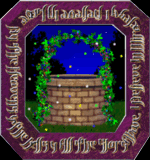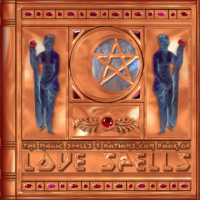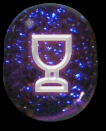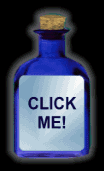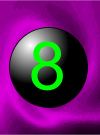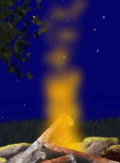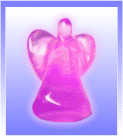Shepherd's Purse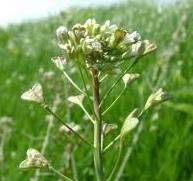
The small Shepherd's Purse (Bursa Capsella Pastoris) is one of the most common of wayside English weeds. The name Capsella signifies a little box, in allusion to the seed pods. It is a Cruciferous plant, made familiar by the diminutive pouches, or flattened pods at the end of its branching stems.
Added Dec 1, 2010
| 7,978 Reads
This herb is of natural growth in most parts of the world, but varies in luxuriance according to soil and situation, whilst thickly strewn over the whole surface of the earth, facing alike the heat of the tropics, and the rigours of the arctic regions; even, if trodden underfoot, it rises again and again with ever enduring vitality, as if designed to fulfil some special purpose in the far-seeing economy of nature. It lacks the winged valves of the Thlaspi. Our old herbalists called it St. James's Wort, as a gift from that Saint to the people for the cure of various diseases, St. Anthony's Fire, and several skin eruptions. In France, too, the plant goes by the title of Fleur de Saint Jacques. It flowers from early in Spring until Autumn, and has, particularly in Summer, an acrid bitter taste. Other names for the herb are, "Case weed," "Pick pocket," and "Mother's heart," as called so by children. If a pod is picked they raise the cry, "You've plucked out your mother's heart." Small birds are fond of the seeds. Bombelon, a French chemist, has reported most favourably about this herb as of prompt use to arrest bleedings and floodings, when given in the form of a fluid extract, one or two teaspoonfuls for a dose. He explains that our hedge-row Simple contains a tannate, an alkaloid "bursine," (which resembles sulphocyansinapine), and bursinic acid, this last constituent being the active medicinal principle. English chemists now prepare and dispense the fluid extract of the herb. This is given for dropsy in the U. S. America as a diuretic; from half to one teaspoonful in water for a dose. Dr. Von Ehrenwall relates a recent case of female flooding, which had defied all the ordinary remedies, and for which, at the suggestion of a neighbour, he tried an infusion of the Shepherd's Purse weed, with the result that the bleeding stopped after the first teacupful of the infusion had been taken a few minutes. Since then he has used the plant in various forms of haemorrhage with such success that he considers it the most reliable of our medicines for staying fluxes of blood. "Shepherd's Purse stayeth bleeding in any part of the body, whether the juice thereof be drunk, or whether it be used poultice-like, or in bath, or any way else." Besides the ordinary constituents of herbs, it is found to contain six per cent. of soft resin, together with a sulphuretted volatile oil, which is identical with that of Mustard, as obtained likewise from the bitter Candytuft, Iberis amara. Its medicinal infusion should be made with an ounce of the plant to twelve ounces of water, reduced by boiling to half-a-pint; then a wineglassful may be given for a dose. The herb and its seeds were employed in former times to promote the regular monthly flow in women. It bears, further, the name of Poor Man's Permacetty (or Spermaceti), "the sovereignst remedy for bruises;"--"perhaps," says Dr. Prior, "as a joke on the Latin name Bursa pastoris, or 'Purse,' because to the poor man this is always his best remedy." And in some parts of England the Shepherd's Purse is known as Clapper Pouch, in allusion to the licensed begging of lepers at our crossways in olden times with a bell and a clapper. They would call the attention of passers-by with the bell, or with the clapper, and would receive their alms in a cup, or a basin, at the end of a long pole. The clapper was an instrument made of two or three boards, by rattling which the wretched lepers incited people to relieve them. Thus they obtained the name of Rattle Pouches, which appellation has been extended to this small plant, in allusion to the little purses which it hangs out by the wayside. Because of these miniature pockets the herb is also named Toy Wort; and Pick Purse, through being supposed to steal the goodness of the land from the farmer. In Queen Elizabeth's time leper hospitals were common throughout England; and many of the sufferers were banished to the Lizard, in Cornwall. The Shepherd's Purse is now announced as the chief remedy of the seven "marvellous medicines" prepared by Count Mattaei, of Bologna, which are believed by his disciples to be curative of diseases otherwise intractable, such as cancer, internal aneurism, and destructive leprosy. Count Mattaei professed to extract certain vegetable electricities found stored up in this, and some other plants, and to utilize them for curative purposes with almost miraculous success. His other herbs, as revealed by a colleague, Count Manzetti, are the Knotgrass, the Water Betony, the Cabbage, the Stonecrop, the Houseleek, the Feverfew, and the Watercress. Lady Paget, when interviewing Count Mattaei, gathered that Shepherd's Purse is the herb which furnishes the so-called "blue electricity," of extraordinary efficacy in controlling haemorrhages. Small birds are fond of the seeds: and the young radical leaves are sold in Philadelphia as greens in the Spring.
Added Dec 1, 2010
| 7,978 Reads
Share The Magic ...
The GoE MONEY!!! Course - A Course In Real MONEY MAGIC!
|

